
49 minute read
News
Launch of Life Sciences Investment Fund Aimed at Disruptive Technology
Discovery Park fund's first recipients making advances in ocular and cancer treatments Discovery Park, one of the UK’s leading centres of life sciences innovation, has today launched Discovery Park Ventures (DPV), a new investment fund aimed at disruptive technologies. The initial £1m from private funding will invest in exciting early-stage companies at start-up or to help them leverage funding without giving up equity or ownership. DPV has ambitious plans to expand the fund up to £25m in the next three years. Based at Sandwich in Kent, Discovery Park is home to more than 160 companies, from multinationals including Pfizer, to innovative startups. The first fund investments have been awarded to ophthalmology company, VisusNano, and drug delivery start-up, Vitarka Therapeutics. The companies have received £100,000 and £140,000 respectively from DPV. The launch comes as the life sciences industry continues to be one of the highest profile global sectors with investment in UK biotech alone jumping 60% to £4.5bn in 20211. Discovery Park is a Life Sciences Opportunity Zone, enabling it to attract investment from national and international business linking research and business expertise. VisusNano is developing a pipeline of intraocular lens implants (MEDILens), expected to revolutionise cataract surgery in both the human and veterinary markets and dramatically improve outcomes for patients. DPV’s investment provides support funding for the company’s £1.39m Innovate UK Biomedical Catalyst award to test the safety and efficacy of MEDILens in humans. It is part of VisusNano’s £1.5m Series A round, which is expected to close shortly. Vitarka Therapeutics is a preclinical biotech company focused on the development of combination medicines using RNAi therapies and a non-viral drug delivery platform, initially focused on cancer. This approach aims to activate the immune system and significantly change outcomes for late-stage patients with lung, colon, breast, and other cancers. Discovery Park Ventures is chaired by Discovery Park CEO, Mayer Schreiber. Emma Palmer Foster and Dr Martino Picardo, who have many years of experience in life sciences company development and investment, are Directors. Mayer Schreiber, Chairman of Discovery Park Ventures, said, “The launch of Discovery Park Ventures will allow us to champion companies that have the potential to make breakthrough-discoveries in life sciences and technology and to scale rapidly. “VisusNano and Vitarka Therapeutics are very exciting investments with which to launch Discovery Park Ventures. We’re looking forward to investing in many more innovative companies in the UK as the fund grows, helping to develop healthcare innovations and drive regional economic growth.” Dr Joanna Gould, CEO of VisusNano, said, “We’re delighted to welcome Discovery Park Ventures as a new investor as we enter this exciting clinical phase of development. As a Discovery Park tenant we have found the environment very supportive, and this investment is another way in which the Park is driving our growth.” Dr Vineeta Tripathi, CEO of Vitarka Therapeutics, said, “We’d like to thank Discovery Park Ventures for its belief in our innovative approach to cancer treatment and therapeutic delivery, and welcome it as a shareholder. Vitarka Therapeutics looks forward to working with DPV as we generate our proof-of-concept data.”
Advertisement

• Founded in Ireland, ID-Pal supports
SMEs and enterprises across Ireland, the US, EU and UK • Rising levels of identity fraud and the increasing complexity of regulation leaves businesses vulnerable to financial crime and the rising cost of compliance • ID-Pal’s technology-first approach offers global coverage of over 6000
ID documents across 200 countries and jurisdictions ID-Pal, a leading identity verification provider, has today announced it is formally entering the UK market following six years of exponential growth. The Dublin-based technology company supports businesses of all sizes in more than 30 sectors, across Ireland, the US, EU and UK. Current clients include large enterprises such as Grant Thornton and Zurich International, as well as SMEs such as UK Adviser and Trust My Travel. It was also the winner of Best Customer Facing Experience at the 2021 Pay360 Awards and Its most recent awards include Best Customer Facing Experience at the Pay360 Awards and IT & Fintech category winner at the Irish Times Innovation Awards 2022. The accelerated move to online during the pandemic, paired with the recent growth in new legislation including potentially conflicting regimes such as 6AMLD and GDPR, has made businesses and their customers particularly vulnerable to the reputational and monetary damage caused by financial crime. Led by Founder and Chief Executive Officer, Colum Lyons, ID-Pal has developed a fully customisable solution for identity and address verification to protect businesses against these risks, available off-the-shelf or as an API/SDK. The GDPR-compliant solution is ISO 27001 certified and can be configured for any jurisdiction or legal requirement in any language in just minutes, offering more robust compliance that is adaptable to support SMEs as well as large, enterprise scale firms. ID-Pal offers coverage of over 6000 ID documents across 200 countries and jurisdictions using a multi-layered approach that includes Biometric, Facial Matching, Liveness Testing, Address verification and Document checks.
Colum Lyons, Founder and Chief Executive Officer, said:
“The way in which identity verification has been done historically is just not sustainable in our digital-first mobile-ready world. Verifying identity documents manually is inefficient and insecure, and the risk of data flight and simple human error can make businesses vulnerable to fraud. Our unique blend of ID checks, all powered by a completely technology-first process, means multi-layered verification takes place on any ID document in real time. Using AI and machine-learning offers greater accuracy in correctly classifying a document and reduces the margin for error and need for manual intervention.” “We’re looking forward to officially launching in the UK market and empowering more businesses with simple, secure convenient identity verification for their business and their customers.”

May 13 2022: After just 72 hours, award-winning digital wealth manager, Moneybox, has closed its second crowdfunding campaign. Over 3 days, more than 15,000 people invested over £6.25million in what is Crowdcube’s most popular crowdfunding campaign of the year so far. Moneybox now holds the record for the second and third most popular crowdfunding campaigns in Europe, ever! The crowdfund was launched to give the Moneybox community the opportunity to share in and shape the company’s future success, alongside top institutional investors. 8,700 people within the Moneybox community invested £3.7million before the crowdfund even went public. Moneybox has seen exponential growth since its launch in 2016. From an initial offering enabling people to ‘invest their spare change’ into a Stocks & Shares ISA, Moneybox now helps over 850,000 customers build wealth with confidence across all their saving, investing, home-buying, and retirement needs. AUA has grown to over £3.1bn, and with a team of 330, Moneybox is now the clear market leader in Lifetime ISAs and is the second-largest wealth manager in the UK by number of customers. Together with the £35million Series D investment announced last month, funds will be used to grow the customer base, enhance the investing proposition, and focus on new, exciting ways to guide and support people with financial planning - for today and tomorrow.
Ben Stanway, Moneybox co-founder,
commented: “We’re blown away with the reception our second crowd raise received this week. Giving our community the chance to share in and shape our future has always been a priority, and our customers have been instrumental in the evolution of our products and services to date. Given the current economic climate, our mission to help people build wealth with confidence has never been more important. Our focus now is on finding new ways to guide and support people with financial planning throughout their lives. By continuing to focus on the under-served mass market we believe we are on a path to create the UK’s category-defining wealth platform.”
Matt Cooper, Chief Commercial
Officer at Crowdcube, commented: “Congratulations to Moneybox for another landmark achievement on Crowdcube! We love to see forward thinking businesses, like Moneybox, champion inclusion by putting it at the very core of the business by turning their customers into shareholders.”
McDonald’s to sell its Russian business
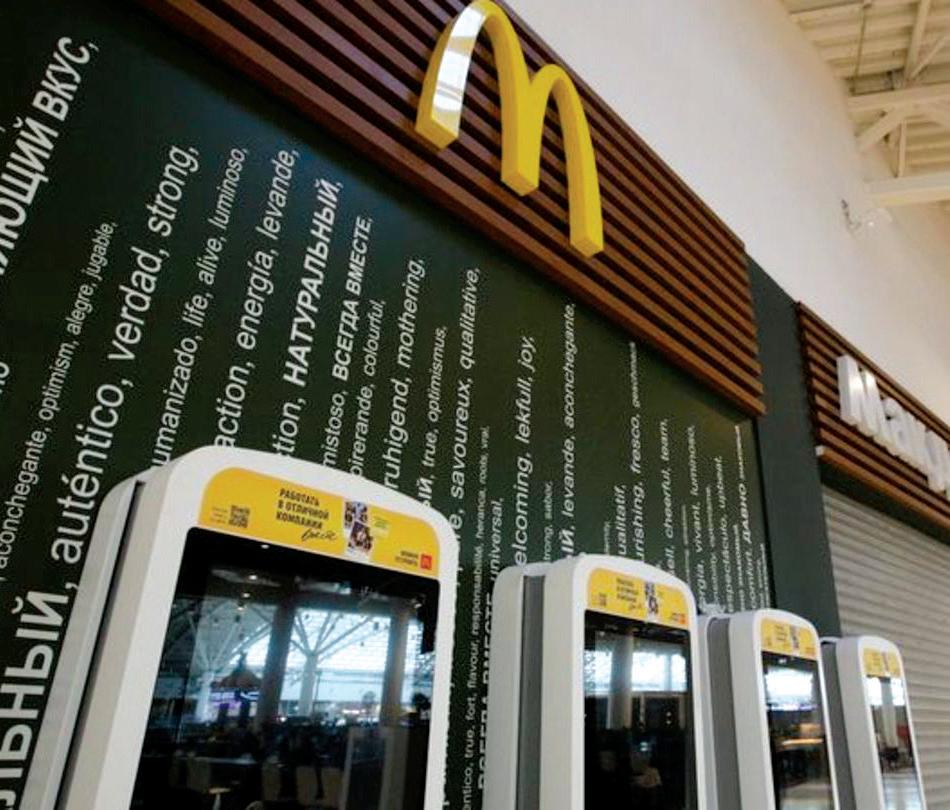
McDonald’s is to sell its Russian business, two months after temporarily closing its restaurants in the country as part of the exodus of western companies in response to the invasion of Ukraine. The chain, which operated 850 restaurants in Russia and employed 62,000 people, on Monday said its business in the country was not “consistent with McDonald’s values” following President Vladimir Putin’s invasion. “The humanitarian crisis caused by the war in Ukraine, and the precipitating unpredictable operating environment, have led McDonald’s to conclude that continued ownership of the business in Russia is no longer tenable,” McDonald’s said in a statement. The Chicago-based company said it expected to book a non-cash charge of $1.2bn to $1.4bn for the exit, and did not identify a possible buyer for the business. The company has continued to pay its Russian employees since temporarily closing its local stores in mid-March. The group on Monday said it wanted a Russian buyer to hire those workers. Chief executive Chris Kempczinski said: “We have a commitment to our global community and must remain steadfast in our values . . . and our commitment to our values means that we can no longer keep the arches shining [in Russia].” The US fast-food group opened its first Russian restaurant in Moscow in 1990 when the introduction of a well-known western chain was seen as one of the markers of the end of the Soviet Union.


Tesla Inc. Chief Executive Officer Elon Musk sold $4.8 billion worth of shares in the electric car maker, just days after he agreed to buy Twitter. Musk sold 5.3 million shares of Tesla stock for an average price of $905.30, according to filings he made with the Securities and Exchange Commission Thursday. As the filings became public, Musk wrote on Twitter, “No further TSLA sales planned after today.“ He remarked in response to an account that heavily promotes Tesla stock, products, and Musk on the social network. The sales represent only 3.1 percent of the Tesla shares he held outright at the start of the day Tuesday, and just less than 2 percent of his total holdings of Tesla if stock options he controls are included. The sale came after Musk clinched a deal to buy Twitter for $44 billion cash in a transaction that will shift control of the social media platform populated by millions of users and global leaders to the world’s richest person. Musk’s net worth is $268 billion, according to Forbes. As part of the deal, Musk said he would provide a $21 billion equity commitment. It is not clear how he will cover the remaining $17 billion of equity financing. Musk holds a 43.61 percent stake in unlisted rocket company SpaceX which is reportedly valued at $100 billion.
Amazon has reported its first quarterly loss since 2015 due to lower online sales and a fall in the value of its shares in electric vehicle firm Rivian. Online sales at the e-commerce giant slipped 3 percent in the first three months of the year, as the boom in its business from the pandemic starts to fade. The company reported a loss of $3.8bn, mainly due to a loss of $7.6bn on the value of its stake in Rivian. Growth in other parts of Amazon’s business, including cloud computing and advertising, remained strong. Amazon invested in Rivian in 2019 with plans for an electric delivery fleet and owns a near-20 percent stake in the company. But the electric vehicle maker’s share price has more than halved since the beginning of the year as the company has struggled to ramp up production. Overall, Amazon forecast sales growth of as little as 3 percent in the coming months — a marked slowdown from the double-digit growth it has enjoyed in recent years, even before the pandemic. “The pandemic and subsequent war in Ukraine have brought unusual growth and challenges,“ Amazon chief executive Andy Jassy said. He added that the company was also facing increased costs, with “ongoing inflationary and supply chain pressures“.

Twitter, which was just agreed to be bought by billionaire Elon Musk, has said its user numbers grew faster than expected over the past year. Advertising revenue has also been rising, but by less than was forecast. Some observers have questioned Mr. Musk’s commercial judgment in buying Twitter, a platform that despite its high profile has not consistently made high returns. In the latest quarter, it made a profit of $513 million on revenues of $1.2 billion. Daily active users of the platform rose to 229 million, up from 199 million a year earlier, the company said, publishing its latest financial results. New users grew faster outside the US, by 18.1 percent than in its home market where numbers were up 6.4 percent over the 12 months to the end of March. Musk’s purchase is likely to take several months to complete, after which the company will be owned privately.
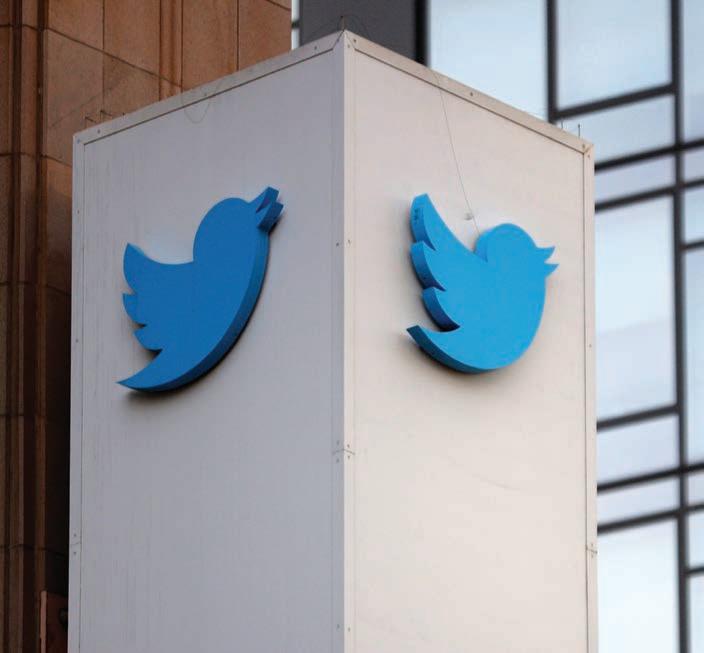
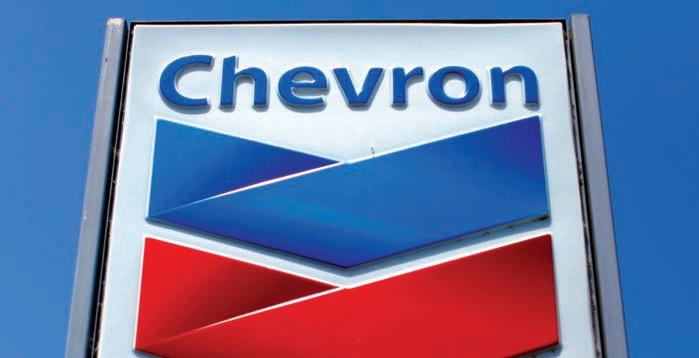
Chevron Corp’s first-quarter profit nearly quadrupled from the same period a year ago, easily surpassing Wall Street’s forecasts as oil and gas prices surged following Russia’s invasion of Ukraine. On the last days of April, the second-largest US oil producer posted adjusted earnings of $6.5 billion, or $3.36 per share, 8 cents above Wall Street’s mean estimate of $3.27, according to Refinitiv. Chevron earned $1.7 billion, or 90 cents per share, in the same quarter last year. The world’s largest energy companies have profited handsomely on the back of rising oil and gas prices, which surged in February as Moscow planned its advance on Ukraine. The global benchmark Brent averaged $114 per barrel in the first quarter. Energy supplies have tightened around the globe as demand has rebounded to near pre-pandemic levels. Chevron’s revenue rose 70 percent to $54.4 billion in the first quarter, above the Refinitiv consensus of $47.9 billion. Mike Wirth, Chevron’s chairman and chief executive officer, commented: “Chevron is doing its part to grow domestic supply with US oil and gas production up 10 percent over the first quarter last year. Chevron’s worldwide net oil-equivalent production in the first quarter was 3.06 million barrels per day. Permian Basin unconventional production grew to a record 692,000 barrels of oil equivalent per day in the first quarter, as the company raised its 2022 guidance to 700,000 – 750,000 barrels per day, an increase of over 15 percent from 2021.” Meanwhile, Chevron’s international production decreased 8 percent, while U.S. production increased 10 percent compared to the same period a year ago.

Car production in the UK has continued to fall as manufacturers struggle with global supply chain problems. Almost 100,000 fewer cars were built in the first three months of 2022 compared to last year. Manufacturing has dropped by nearly a third, according to the Society of Motor Manufacturers and Traders (SMMT). The SMMT linked the decline to a global shortage of computer chips and rising energy costs for manufacturers. During the first three months of the year, a total of 207,347 new cars were built in the UK, down from 306,558 in the same three months in 2021, when the pandemic created added pressures for manufacturers. Manufacturers have been struggling to get hold of the parts they need — in particular semiconductors, or computer chips, which are widely used on modern vehicles. At first, Covid has thrown a huge spanner in the normally smoothly-operating machinery. Supply chains have been disrupted and vital parts — particularly computer chips — have not been there when needed. When that happens production has to be slowed or even stopped. Now there are other problems to contend with as well. The war in Ukraine has pushed energy prices sky-high — a major problem for the industry. It has also triggered new parts shortages. This situation isn’t unique to the UK. But it comes at a time when the car industry here is desperate to put itself at the forefront of the move to electric vehicles - and attract the new investment which was in very short supply during the years of Brexit-related uncertainty.
After experiencing surging growth during the pandemic, Netflix shares plummeted to their lowest point since January 2018 as investors reacted to the streamer’s first subscriber loss in more than a decade — bringing years of booming growth to a screeching halt. Shares in Netflix have slumped by 35 percent after it revealed a sharp drop in subscribers and warned millions more are set to quit the streaming service. It wiped more than $50 billion off the firm’s market value as experts warned it faced a struggle to get back on track. Among other factors, co-CEO Reed Hastings blamed the subscriber shrinkage on “great competition” and the company’s estimate that more than 100 million households are streaming the service using a shared password without paying for it. To try to right the ship, Netflix is aiming to convert freeloading password-users into subscribers and to roll out a lower-cost, ad-supported tier over the next two years. “I know it’s disappointing for investors, and it is for sure,” noted Hastings. “But internally, we’re really geared up, and this is like our moment to shine. This is when it all matters. And we’re super focused on achieving those objectives and getting back into our investors’ good graces.” However, Netflix remains the world’s leading streaming service with more than 220 million subscribers. It is increasingly producing its own content and shows such as the Crown, Bridgerton, and Squid Game have been global hits.
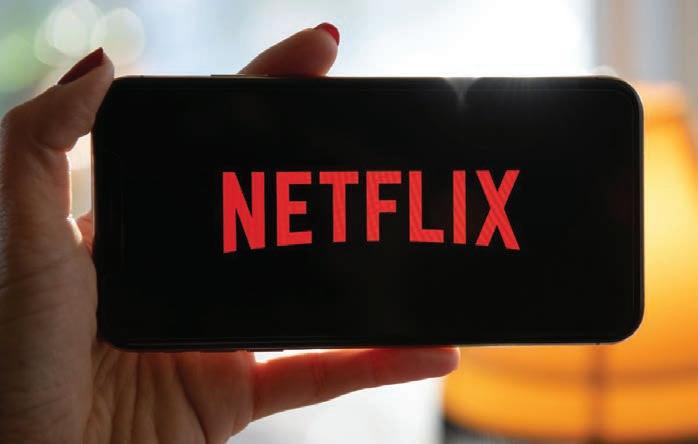
Unilever, the multinational company behind various leading brands including Dove, Ben & Jerry’s, and Knorr, announced in its most recent trading statement that several products have become more expensive in the first quarter of 2022. Across all brands in Europe, Unilever says in-store prices have increased by an average of 8,3 percent over the past few months — and has revealed that production costs are likely to rise further in the near future. Similarly, Nestlé, the world’s biggest food and drinks company, which also owns brands such as Maggi, Häagen-Dazs, and Perrier, is set to raise its prices for the second time in six months. At the end of 2021, the Swiss international company increased prices as a result of the long-term effects of the coronavirus pandemic. They also acknowledged that the rising cost of energy and various other raw materials will mean several leading brands are set to become even more expensive. Consumers in North America took the hardest hit, with an 8.5 percent rise in prices, the company said in its first quarter of 2022 earnings report. Latin America saw the second-biggest increase, with the price of Nestlé products rising 7.7 percent. CEO Mark Schneider noted that “We have stepped up pricing in a responsible manner and saw sustained consumer demand. Cost inflation continues to increase sharply, which will require further pricing and mitigating actions for the year.“
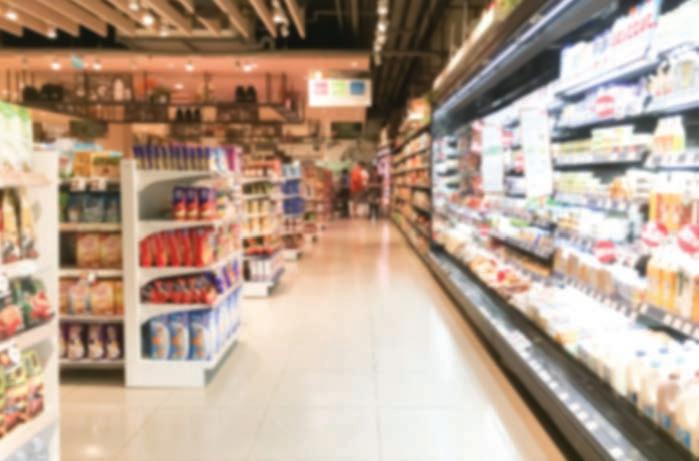

Apple has reported record revenue and profits for the second quarter of its financial year but warned that it expects a greater impact ahead from the effects of Russia’s war in Ukraine. Apple’s revenue for the January- through March period rose 9 percent to $97.3 billion, far exceeding analyst expectations for $94 billion. Just over $50 billion of that came from iPhone sales while services, including music and video subscriptions, contributed a record sum just shy of $20 billion. The iPhone maker’s shares were up by 3 percent in after-hours trading — having gained 4.5 percent in regular dealings earlier in the day in anticipation of a strong showing despite several major headwinds. Earnings per share rose to $1.52 from $1.40 a year earlier—beating estimates for $1.42 a share and setting a record for Apple’s fiscal second quarter. The $97 billion quarter ranks as Apple’s third-best in history by total revenue, but one of its slowest growth since the pandemic began more than two years ago. The company has seen double-digit year-over-year growth each quarter since the launch of the first iPhone with 5G capabilities in October 2020. However, the company’s chief financial officer says the impact of Russia’s war with Ukraine will have a greater impact on the current third quarter as its core financial numbers prove resilient in the face of COVID-related supply problems.

A factory owned by Ferrero that produces Kinder chocolate products has been ordered to close the following links to dozens of salmonella cases. It comes after all Kinder Surprise, Kinder Surprise Maxi, Kinder Mini Eggs, and Kinder Schokobons products that were manufactured at the site in Belgium were recalled. Belgium’s food safety authority has also ordered the recall of all Kinder products made at the factory in Arlon, which is owned by Ferrero. Suspected salmonella cases linked to Kinder chocolate have been reported in countries including the UK, Germany, France, and Belgium. Ferrero has apologized and acknowledged “internal failures“. Belgium’s food safety authority, the AFSCA, said the factory was ordered to shut down after Ferrero was unable to provide complete information for its investigation. The AFSCA said the investigation was ongoing and the factory would only be allowed to reopen if Ferrero could provide the necessary guarantees that it complied with food safety regulations. The AFSCA has also asked companies to remove the products from their shelves and advised people not to eat them. A few days later, Ferrero recalled some of its Kinder chocolates from shops in the US and UK over concerns about potential salmonella contamination. Other products manufactured by Kinder are not believed to be affected, the FSA said.
Home-sharing platform Airbnb announced that it is planning to let its employees live and work wherever they want as other firms start to look beyond the coronavirus pandemic and bring staff back to the office. Brian Chesky, the company’s CEO and co-founder revealed the move on Twitter, saying that staff compensation won’t change if they decide to move. The move is in contrast to the likes of Google in the US, where staff who work from home may see their pay cut. Other tech firms that have flexible working policies include Cisco and Microsoft. Airbnb chief executive Brian Chesky sent employees an email, detailing its new flexible working policy. He predicted that in 10 years, flexible working would be the norm for many people. “If we limited our talent pool to a commuting radius around our offices, we would be at a significant disadvantage,“ he said. “The best people live everywhere, not concentrated in one area.“ He added that employees would have “the flexibility to travel and work around the world“ from September for up to 90 days. Chesky noted that employees will still need a permanent address for tax and payroll purposes. Despite this, employees will still have to meet up regularly for meetings and social events, structured around two major product releases per year.

Why meta needs to get ahead of the curve in the VR world


For years, one of Facebook’s biggest problems has been its refusal to acknowledge how much it is disliked by the public. Users might keep their accounts open but goodwill is in short supply. A sell-off in shares has made it harder to ignore. But don’t count Mark Zuckerberg out just yet. Let’s get the bad news out of the way first. Facebook, now called Meta, is the worst-performing Big Tech stock of 2022. The share price is down 41 per cent this year, a bigger drop than Apple, Alphabet, Microsoft or Amazon. In April, the market valued Meta at 14 times expected earnings — a record low. A rare dip in users and slowing sales growth has investors wondering if the gigantic advertising business is running out of steam. But Zuckerberg has form when it comes to defying expectations. In 2009, in the wake of the financial crisis, he swapped his signature hoodie for a suit and tie to signal how seriously he took the business. After a botched market listing in 2012 he got better at managing investor expectations by underpromising and overdelivering. Now he has to learn how to sell his vision of the future. Zuckerberg is one of Big Tech’s last founders turned leaders. He retains absolute control over the company thanks to shares with majority voting rights. That gives him the ability to make sweeping decisions other companies might hesitate to execute. Facebook’s brand is toxic? Change the name to Meta. User growth is stalling and everybody’s watching TikToks? Go all in on the metaverse. Facebook’s rebrand not only managed to drag attention away from whistleblower accusations about safety, it made the metaverse into a global topic of conversation. But it is still not clear what Zuckerberg wants that metaverse to be. Is it somewhere we visit or a world we inhabit full time? Will it replace Meta’s existing revenue or expand it? Zuckerberg lacks the allure of Elon Musk, whose Twitter musings on the future of electric cars, life on Mars and free speech can channel billions of dollars of investment and lead global news. On Facebook, Zuckerberg may have more followers than Musk has on Twitter, but his posts do not generate the same attention. The metaverse is a technologically difficult project too. Visual effects are not lifelike and headsets are bulky. Strapping them on means shutting everything else out. No checking your phone or going for a walk at the same time. What works in Meta’s favour is the lack of exciting consumer tech elsewhere. I’m old enough to remember when friends would drag you over to admire their colourful iMacs. What is today’s equivalent? New smartphones are just slicker versions of the last. Self-driving cars are not yet for sale. The answer could be virtual reality. I have a first-hand example. This year, my dad bought a VR headset from Meta. It has since been taken to family parties, coffee shops, neighbour’s houses and the golf course so that everyone can try it out. He uses it every day, watching the swirling graphics on a meditation app. His only complaint is that most apps are games. When there is more to do with a VR headset, he’ll do it. The headsets are not yet mainstream, which may be why interest is still limited. This year, National Research Group interviewed 2,500 US consumers about virtual reality. Only one-third were excited about its potential. But that figure might be higher if more people tried it. Of those who did, 86 per cent had a positive experience. That could well make them feel more attracted to Meta too. Still, it’s reasonable to ask why the revolution is taking so long. Zuckerberg purchased VR gaming company Oculus back in 2014. Sales are still low. Data from the International Data Corporation found that although Meta’s $299 Quest 2 was the most popular headset on the market, it sold fewer than 9mn units last year. Project Cambria, Meta’s code name for a mixed reality headset, might find a bigger audience. Mixed reality overlays digital images on the real world — making it more practical to experience virtual reality without tripping over your shoes. But this headset, expected later this year, will also be more expensive. Meta is caught between wanting to get affordable headsets to the market as soon as possible and spending more time and money working on the tech that will get users hooked. Reality Labs, the company’s metaverse division, accounts for just 2.5 per cent of total revenue but lost $3bn in the space of three months this year. To keep the pace of investment going, Zuckerberg needs to find a better way to explain his dream. Truly immersive virtual reality is an expensive, speculative project that may not pay off for years to come. Then again, that’s exactly what Silicon Valley was made for.

Business travel spend heading back to pre-pandemic levels
Spendesk, the 7-in-1 spend management solution for small and medium-sized businesses (SMBs), has today shared its latest insights into business travel spend throughout the pandemic in the UK, France, and Germany. Spendesk monitors business spend – including travel, accommodation, and eating out – across 3,500 SMBs in the three countries. The latest data shows how business spend has recovered in the first quarter of 2022, getting closer to pre-Covid levels, while looking at spending patterns throughout the pandemic. The latest key findings include: • While there was a dip in business travel spend in all three countries in early 2022, levels rallied in March 2022, and exceeded pre-
Covid levels in France. In the UK,
March 2022 spend was 4,364€, compared with 4,958€ in November 2019 • The Omicron variant and seasonal factors can be seen as the main reasons for the dip in early 2022.
UK spend, which had been at twothirds (62%) of pre-pandemic levels in November 2021, fell by 38% in January 2022 • Across the period as a whole – from the first wave of the pandemic to the first quarter of 2022 – recovery in Germany and France has been swifter than in the UK
When it comes to specific travel habits and preferences across the period, there are general trends that reflect broader responses to COVID-19 impacts. For instance, spending across the three countries on flights declined by 41%, while spending on rail journeys decreased by 21%. Overall, there was a 45% rise in spend on car rentals, while spend on petrol increased by 343% as prices in Europe spiked to record levels in the third quarter of 2021. The UK saw the biggest spike in spend on car rentals (+344%) and cost of fuel (+691%) over the period. At a regional level, the markets have shown some differences in travel habits and costs. The UK is the only one of the three countries where train travel (-58%) saw bigger declines than flights (-42%) from 2019 to 2021. The UK is also the only country where spend on flights has increased compared to pre-Covid (+14% as of 2022). When it came to other types of spend – such as accommodation and eating out – hotels remain more popular than Airbnb for business travellers in all three countries. While business spend in restaurants dropped dramatically during the first wave, and again during January 2022, the most recent figures show more positive signs. For example, in the UK, monthly restaurant spend was back to 60% of preCOVID levels last month; up from a third in January 2022.


Pello Capital, the intelligent and transparent investment company, has announced plans to become the
first ever regulated institution to allow listed corporate customers the option to pay their annual fees using
cryptocurrency. The move will allow publicly traded companies the option
to pay using over seven cryptocurrencies including Bitcoin, Ethereum, USDT and Litecoin.
Alongside the move, Pello is also
launching a facility to allow clients to spread the cost of their annual fees over 12 monthly installments at
no extra cost. This is the first step in the investment bank’s goal to create a much more flexible and user driven format than the current traditional corporate broking experience. This service will be available in the next 30 days to existing and new listed clients in the UK. Pello Capital started as an ideal. In an industry focused more on profit margins than community the founders felt lost. There was no brand that championed consumer outcomes and engagement whilst offering the efficiency and experience of a tech company with the warmth and service of a traditional brokerage. With this goal at the foundation of the business, Pello Capital was launched in 2017.
Daniel Gee, MD at Pello Capi-
tal, commented, “This is an exciting time for Pello and our corporate customers. We have built our business on accessibility and this announcement is our next move in creating a more user-friendly corporate broking product. Alongside Rishi Sunak’s comments on making Britain a “global hub for crypto” we’ve listened to our customers and are giving them the option to start embracing cryptocurrency in a safe and measured way. The team are delighted to be able to offer a true industry first and we are extremely excited about what the future holds and how we can pivot as a business to remain at the forefront of innovation. Our belief is that access to good quality investors and growth capital shouldn’t be a privilege but a right for every listed company. Pello aims to lead the way by creating a fair and transparent platform that gives our clients the best chance of success for their business and investments” Pello bridges technology and customer services to provide investment solutions to everyone from an inexperienced individual who’s never invested to big banks. The investment company treat each customer as an individual to ensure they understand specific investment needs.
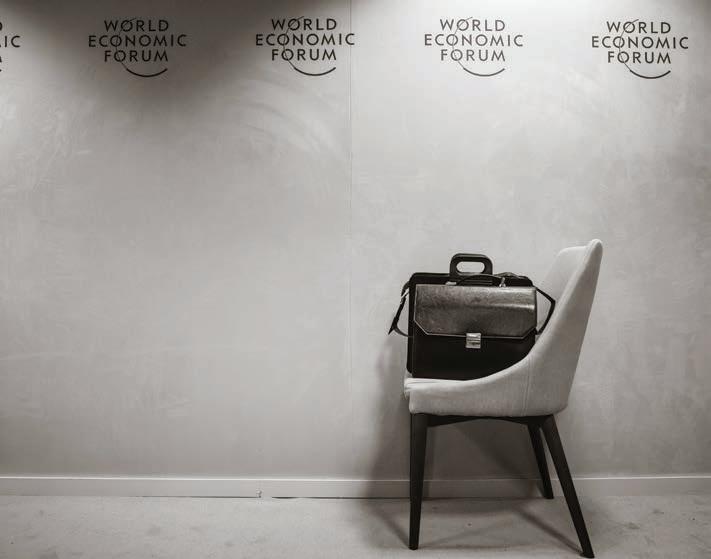
Global Policy-makers Face Complex Set of Divergent Economic Challenges in Coming Year
From the impact of a new COVID variant to continued inflation, governments will continue to face economic challenges in 2022. In a session on the global economic outlook, policy-makers outlined their immediate and long-term actions to stabilize the global economy to business, government and civil society leaders taking part in the World Economic Forum’s virtual event, the Davos Agenda. Kristalina Georgieva, Managing Director of the International Monetary Fund, emphasized that the response to the pandemic crisis has been anything but orthodox. “In a highly coordinated fashion, the world central banks and fiscal authorities have prevented the world falling into another great depression,” she said. “Policy flexibility is critical in 2022 – persistent inflation, record fiscal debt levels and COVID-19 combine to present a complex obstacle course for policy-makers,” she added. In particular, vaccination rates represent a dangerous divergence between countries; more than 86 countries did not meet end-of-year vaccination targets.” Georgieva expects the economic recovery will continue in 2022, but she cautioned: “It is losing momentum amid persistent inflation and record debt levels which now exceed $26 trillion.” More than 60% of developing countries are heading towards debt distress”, she said, more than twice as many as a few years ago. Christine Lagarde, President of the European Central Bank, said that during the COVID-19 crisis, monetary and fiscal policies joined hands to respond exceptionally to the pandemic. “In Europe, so far, we are not seeing inflationary pressure spiral out of control. We see wages and energy prices stabilizing from the middle of the year as bottlenecks reduce and wage inflation normalizes.” She added: “In Europe we are unlikely to see the kind of inflation increases that the US is experiencing; demand and employment participation are only just returning to the pre-pandemic levels.” She stressed that “Europe is stronger and more united than it was before the pandemic and we will act if we need to.” Kuroda Haruhiko, Governor of Bank of Japan, said Japan has been relatively successful in minimizing the death rate from COVID-19, although the economic recovery is still lagging. “Public sector debt in Japan is now well over 200% of GDP,” he said, “but the government projects a primary surplus from 2025, hence thereafter public debt should decline.” He was optimistic about progress so far. “The Bank of Japan’s accommodative monetary policy has been working well and the Japanese economy is now emerging from the spectre of 15 years of deflation.” He went on to say: “In Japan we expect an inflation rate of about 1% in 2022 and the Bank of Japan will continue our stimulative monetary policy” Sri Mulyani Indrawati, Minister of Finance of Indonesia, revealed that the country should see a strong recovery in 2022. “To build on this, we are expecting more than 1% of additional GDP growth from a series of recent reforms.” She said that Indonesia is the largest economy in the ASEAN region but “it is vulnerable to a dependence on commodities – the emphasis now is on value-added activities”. She added: “We are improving Indonesia’s investment environment with a comprehensive reform package on tax, regulation and incentives.” Paulo Guedes, Minister of Economy of Brazil, said his country’s economy is bouncing back strongly and economic output is already above the pre-pandemic level. “Do not underestimate Brazil’s resilience,” he said. “The country’s debt to GDP ratio has stabilized at around 80%, well less than widespread fears that debt/GDP could exceed 100%.” He pointed out that more than 3 million new jobs were created in 2021 and the government has assisted 68 million Brazilians with direct income transfers. He was less upbeat about inflation. “Central Bankers are asleep at the wheel – inflation will be a persistent problem for the western world. Inflationary pressures will not be transitory.”

Having a large company can be challenging, especially because you need to know how each department is doing. Apart from handling your physical store and website monitoring, you also need to be active on your social media accounts, especially Instagram, to see how people digest your business presence online. Instagram is a great social media platform for businesses as they get to maximize infographics, especially with the help of Instagram growth services. Additionally, an aesthetically pleasing post would surely attract more audiences to your page, which could help increase your sales. Besides, while you can allow your social media team to handle all of your activities and content, your involvement as an executive would benefit your company. Here are some reasons executives should be active on Instagram:
1. To Check On Progress As an executive, you always need to be on top of your company to know its progress. This will help you determine if you’re going on the right path or if your company is heading towards downfall. Aside from your sales number, you should also check the progress of your Instagram page to see how your audiences are taking you as a company and if you’re leaving a good impression on them. This should help you move in the direction you’re going in and see which areas need improvement. As you check the progress of your Instagram account, you might want to consider having an Instagram growth service so you can maximize your potential and allow your account to reach greater heights. You can check out some service providers, like Kicksta, and see if they’ll meet your needs and wants for your social media pages. As you become active on Instagram, you’ll be able to track your progress and implement new strategies to be stronger in the market.
2. To Connect With Your Audience No one enjoys purchasing from a company that doesn’t connect with them. As an executive, it’s your responsibility to ensure that all your audience feel comfortable with your company and would not hesitate to get in touch with you. You should browse your Instagram page during your spare time and see how your audience reacts to your posts. Upon reading messages and comments, you should be able to understand what their needs and wants are and try to make them happen, if possible. The more you try to connect with and understand your audience, the more you can deliver the best services.
3. To Share Your Expertise Some people might be tired of seeing your products on your Instagram page, where everything looks and feels staged. To allow your feed to have a personal touch, sharing your expertise through this platform may help improve your account’s engagement and get in touch with your audience better. There are plenty of ways to share your expertise with your followers. You can film a video about your intention for building your brand, the story behind every product, or how you plan and work hard to ensure that you deliver the best services. You could even post stories on your Instagram and share some business processes or even provide some tips on how they could make the most out of their purchase. 4. To Know The Current Trends Knowing the current trends would help put your company in the loop and attract as many audiences as possible, which could convert into sales. To allow your company to be in touch with your audience, identify the current trends and try to move along with them. The more you stay relevant to your customer, the more people will be interested in your products, giving you consistent sales for your company. An easy way to identify the current trends is to use a tool that gives you direct information about what fascinates people at the moment. Although those tools can be helpful, being in the actual loop helps you understand the trend better and allow yourself to connect with it. It will help provide better marketing results to know what your customers want.
5. To Bring You Closer To Your
Followers Everyone would appreciate working with a company they can communicate with comfortably. Being active on your Instagram allows your company to be approachable and light, which can help bring you closer to your followers. You could post stories of yourself communicating with your audience and answering some comments and messages once in a while. You could even ask them questions at midday to connect with them better. It will only take a short minute of your day, but this will improve your brand image in the long run.
Takeaway Being an executive means there will always be something on your plate. Although it might be out of your schedule, giving your Instagram account your undivided attention can benefit your company as you project an approachable and compassionate image to your followers. Therefore, take a few minutes of your day to check on your Instagram and see how it will do wonders for your company.
Quin AI, a predictive AI startup founded by two sisters, Gonca Gulser and Gulsah Gulser, has raised £582K funding led by SFC Capital and with participation from NCA, Logo VC, and StartersHub. The fund has been raised to scale Quin AI’s activities in the United Kingdom and Germany, as well as further innovations in AI for creating intelligent applications. Achievement of the fabled “real-time enterprise”, able to perceive and react to events and changes as they take place is the key for success. The revolution is happening but going realtime is still tricky and costly. The need for real-time algorithms, predictive insights and data infrastructure are creating a new category of applications, and Quin AI is positioned as a fully autonomous predictive AI tool for low touch digital selling and engagement. Quin AI begins to understand each and every visitor, as soon as they land, and it predicts their behavior in a matter of a few clicks in a privacy-safe mode. Predictions are processed to engage with visitors in real-time, under 70ms either through native pop-up or API integrations with any existing engagement tool. The tool is very simple to set up, leverages first-party data and can immediately increase companies’ revenue by 30 percent in 15 days. Quin AI provides solutions for e-commerce businesses with traffic as low as 250K monthly visitors as well as larger businesses. Gulsah, CEO of Quin AI said: “We are very excited to close this round with an amazing team and group of investors in making easy, accessible, and privacy-safe ML applications to predict user behavior. We already started our journey with the e-commerce industry where there are massive amounts of untapped user data and increasing privacy concerns.” Gulsah has over ten years management consulting experience with a focus on customer strategy, and Gonca has twenty years experience as a data scientist, specializing in customer behavior analytics including in e-commerce. The idea for Quin AI was developed when sisters noticed in their research and business projects that traditional tools and technologies stay insufficient, especially when real-time engagement and personalization for online visitors is required. Relying on historic data and large amounts of information on users, increases the time needed to process user data and reporting where users can make decisions in milliseconds. The result is that staying agile becomes challenging where managing the scalability and usability of solutions is required. Quin AI brings a new level of real-time intelligence to online stores and existing tech-stacks used in the e-commerce industry. Edward Stevenson, investment manager of SFC capital expresses that “with the rising prevalence of data protection and the declining use of 3rd party data it is becoming much harder to target customers online. Quin AI have developed and deployed a solution that mitigates this problem, which enables online retailers to analyze the actions of customers on their websites in real-time and take actions that boost conversions and sales. We are excited to see what the future holds for Quin AI and the great team driving it forward.”
Wittmuetz, Managing Partner at Next Commerce Accelerator (NCA),
said: “Quin’s fast traction in building the technology is backed and validated by strong brands like Kingfisher’s subsidiary, Under Armour, and Decathlon as customers. Our investment into Quin AI shows our commitment to support scalable, hands-on solutions that drive direct revenue uplifts in the field of e-commerce. We as NCA are convinced by the huge market opportunity, the innovative product approach, and the superior founding team.”
Arda Askin, Managing Director,
StartersHub, said: “We are very happy to be part of Quin AI’s journey in helping e-commerce companies to increase their revenue and engagement while adding the best value to end user experience. With Quin AI’s real-time technologies retailers acquire new tools to understand customer actions without the need for cookies, which will cease to exist in near future. We will keep following new solutions in the e-commerce vertical and are very excited to see how Quin AI’s new approach will evolve the market.”

Banking Circle partners with Gresham to streamline cash control and scale to rapid growth

London, 11 May, 2022 – Global fintech Gresham Technologies plc (Gresham) today announced that next-generation digital B2B payments and banking services provider, Banking Circle, has adopted Gresham’s Control solution for cash reconciliation. A global market leader in mission-critical cloud-based software and managed service solutions for financial services, Gresham enables the growing bank to scale more quickly, easily and affordably by facilitating the reconciliation of millions of customer transactions per week. Although ESMA’S 2021 EMIR and SFTR data quality report acknowledged improvements, it also stated specifically that “data reconciliation will require more efforts by reporting entities,” with persistent and prevalent reconciliation, data quality, and reporting problems still present throughout the financial services industry amid increased market volatility and volume shifts. By operating as a cloud-based managed service, Gresham’s Control solution allows Banking Circle to outsource non-core business functions, including end-to-end management of Gresham’s Clareti platform, and focus on higher-level, value-add tasks. The elimination of costly manual processes, human error and infrastructure management has led to a more streamlined experience for customers, and more scalable and resilient operations for the bank. This partnership is part of a wider shared mission of the two industry leaders, both of whom are part of the Luxembourg House of Financial Technology (LHoFT), to improve market confidence and facilitate fintech innovation. Morten Juhl Lilleøre, Head of Operations at Banking Circle, said: “Gresham’s Controlsolution is already improving our control mechanisms while simultaneously allowing us to innovate and scale. This particular module was exactly suited to meet the challenges we’re facing today, and Gresham’s best-in-class technology stack is aligned with several of our future objectives. We’re looking forward to expanding our relationship to leverage additional solutions and services such as securities reconciliation and other key functions which are essential to our long-term competitive advantage and business growth targets.” Vincent Him, Sales Director for Europe at Gresham, added: “In today’s regulatory landscape, firms are not only expected to control their cash, but also provide comprehensive proof of that process. Most firms need compliance and data reconciliation automation and expertise to help reduce risk and future-proof their businesses. These requirements can be a barrier for entry, particularly for new entrants. We’re thrilled to deliver committed, tailored cash control support as Banking Circle focuses on expanding its business.” Alex Panican, Head of Partnerships & Ecosystem, at The Luxembourg House of Financial Technology (LHoFT), commented: “We’re excited to see two fintech champions coming together to push the folds of what efficient cross-border payments can look like. With Luxembourg’s growing status as a fintech hub, there’s no better time or place to be investing in innovation.”

LONDON, England, 11th May 2022: B4B Payments, a leading global payments provider, is pleased to announce an exciting new partnership. Swedish fintech start-up Juni has chosen UK payment solutions provider B4B Payments to deliver their innovative financial services offering for ecommerce companies, this is delivered as part of a new service by B4B, designed to help fintech startups scale their offerings more rapidly. Gothenburg-based Juni was listed as 2021’s fastest-growing fintech startup in Europe, raising $76M in Series A funding and has recently come out of beta with its all-in-one financial management platform. With a goal of eliminating common challenges faced by ecommerce businesses, Juni has leveraged B4B Payments’ BIN sponsorship 2.0 service to power their prepaid card proposition, with the aim of making it easy for businesses to keep track of their finances across multiple platforms. B4B Payments CEO Paul Swinton said: “We’re delighted to be supporting Juni to bring the Juni prepaid Mastercard to market, and to see our payment solutions leveraged in such an innovative way to empower ecommerce and digital marketing entrepreneurs. As an established fintech firm ourselves, we’re excited to be part of Juni’s success, and we look forward to working closely with them to achieve their ambitious roadmap.” Juni co-founder and CEO, Samir El-Sabini, said: “We’re really excited about our partnership with B4B and their support in building our infrastructure. It will enable us to scale Juni and continue our fast-paced growth while, most importantly, give our customers more value when using our platform. Through B4B, we’ve recently launched our new USD accounts and Mastercard cards, and we’re looking forward to launching additional currencies and features in the coming months.” B4B Payments’ issuing solution is designed to provide an easier path to market for innovative fintech firms like Juni by removing many of the complexities of regulatory compliance. While Juni is not currently a financially regulated entity, B4B Payments enable them to offer fully secure and compliant card issuing and payment services integrated seamlessly into their platform without first needing to jump the hurdles of gaining regulated status. Juni has selected B4B Payments to support the launch of their virtual Mastercard prepaid card. With the option to make payments in multiple currencies, process FX transactions with a 0.25% capped fee, earn 1% cashback on ad spend, and access data from multiple ad accounts in a single dashboard the Juni Card empowers ecommerce businesses to gather data insights, make better decisions, and scale their activities more effectively than ever before. B4B Payments’ next-gen solutions are designed to scale flexibly over time to support fintech companies from their earliest days as a start-up through to becoming a fully licensed entity in their own right. By offering not only access to the required licenses, but a raft of resources and expert support, B4B Payments aim to support a new wave of fintech companies on the path to success.
11th May 2022- Remote and hybrid work in the post-pandemic era is amplifying burnout for a third of financial services and banking professionals. A new study by LemonEdge, a global digital accountancy platform for the private capital and venture capital industry, found that while some workers have experienced the positive benefits of hybrid working, and even decreased levels of burnout, a third (33%) of financial and banking services workers state levels of burnout has increased due to changes in work environment since the pandemic and working from home hybrid model. Within this, one in six (14%) state burnout has increased exponentially. With businesses settling into hybrid work arrangements, implementing in office and work from home set ups, the study by LemonEdge looked into the impact working from home and hybrid working has had on professionals in financial and banking services. Over one in three (37%) workers claimed the driving factor of burnout has come from increased workloads imposed upon employees. This was closely followed by increased work demands (36%) longer working hours (34%) and tech challenges (32%). Increased working hours are burdening many financial service professionals, as close to a third (31%) of workers reported working over their contracted hours every day, over half (57%) stated they do multiple times a week, and almost every employee (94%) claimed to work over their contracted hours at least once a week.
Consequences of burnout
The consequences of burnout are monumental, with nearly a quarter (23%) of financial service workers stating they are specifically concerned about their health or mental health, while one in five (22%) of workers report feeling stressed. Looking at gender differences, the study found 27% of males respondents reported having higher levels of stress, compared to 19% of females respondents. In order to circumvent burnout, a third (33%) of financial services professionals are in agreement that a reduced workload would reduce burnout. Other solutions include time off work (27%), more support from management (25%), and faster, more efficient technology (23%).
Gareth Hewitt, Co-Founder and Chief Executive Officer at LemonEdge,
comments: “Even in this new age of working, financial services and banking professionals are burning out at an alarming rate. Firms are battling the challenge of working to the highest efficiencies and handling complexity on an unforeseen scale, all while offering flexibility to employees which they absolutely have the right to enjoy. “The risk of burnout to employers is huge. Firms need to be aware of the impact absenteeism and presenteeism will have on both their employees and business productivity. Just because you’re working from home, or in a hybrid model, doesn’t mean you can’t enjoy time off. With one in four (23%) asking for faster or improved technology to eliminate manual processes, firms need to look at their approaches to improve the lives of their staff. In this day and age, technology, not only can but should, provide the automation and flexibility that can contribute to reduced stress, reduced working hours, and lower risk of burnout. At LemonEdge we are passionate about providing the tools and technology that enable financial services professionals to get home on time.”


Brussels has cut its growth forecasts further and lifted its inflation outlook as the energy crisis triggered by Russia’s invasion of Ukraine exacts its toll on the EU economy. Both the EU and euro area are set to expand by 2.7 per cent this year, well shy of the previous expectation of 4 per cent, forecasts published by the European Commission on Monday showed. Growth is tipped to be 2.3 per cent in 2023. Inflation is expected to surge above 6 per cent in both the EU and euro area this year, with some central and eastern European countries likely to see double-digit price rises in 2022. Paolo Gentiloni, the economic commissioner, said in a statement on Monday: “Russia’s invasion of Ukraine is causing untold suffering and destruction, but is also weighing on Europe’s economic recovery.” He added: “The war has led to a surge in energy prices and further disrupted supply chains, so that inflation is now set to remain higher for longer.” Energy costs have soared and confidence has faltered in the wake of the invasion of Ukraine. The commissioner also cautioned that other scenarios were possible where “growth may be lower and inflation higher than we are projecting today”. One such scenario — an outright cut in gas supply from Russia — would dent growth by 2.5 percentage points to just 0.2 per cent, according to the commission’s projections. A percentage point would be shaved off the 2023 growth forecast too. Inflation would be 3 percentage points higher than the baseline projection in 2022 and 1 percentage point higher in 2023. EU member states have pushed through five rounds of sanctions, and are now in the process of seeking to finalise a package targeting the oil sector. Those measures have yet to be agreed, however, given resistance from EU member states heavily reliant on Russian oil — most notably Hungary. Energy prices were up 38 per cent year on year in April in the euro area, and food costs by more than 6 per cent in the same period. A separate commission report published on Monday warned of multiple shocks, from supply chain snags to higher commodity prices, that could further hit households’ purchasing power in the coming months. Inflation is set to fall to 2.7 per cent in 2023. But the figure remains above the European Central Bank’s target of 2 per cent. Last week, ECB president Christine Lagarde signalled that she would support raising the main interest rate in July, paving the way for the first increase for more than a decade. Recommended News in-depthEurozone economy Eurozone’s long-stagnating wages start to rise as cost of living soars With the threats to growth mounting, some economists want the European Commission to announce another suspension to its deficit and debt rules next year. Despite the harsh outlook, the commission still expects unemployment to carry on falling following the surge induced by Covid-19. The jobless rate will drop from 7.7 per cent last year to 7.3 per cent in 2022 in the euro area, according to the draft forecasts, before slipping further to 7 per cent in 2023. Budget balances are also expected to gradually improve. The overall euro area budget gap is predicted to drop from 5.1 per cent of GDP last year to 3.7 per cent this year and 2.5 per cent in 2023.










